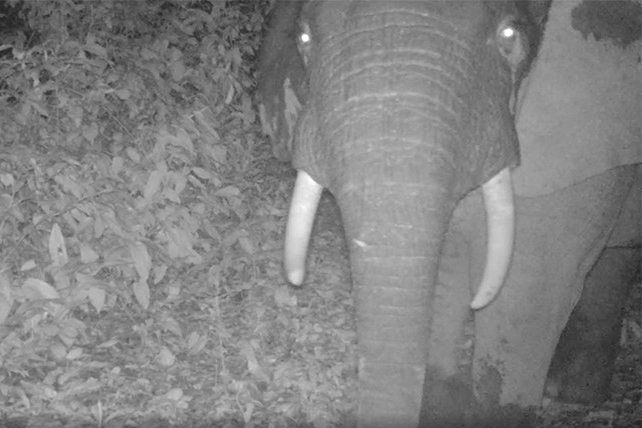RESEARCH: Solutions to improving human-elephant interactions in Cameroon could be as simple as using deterrent measures such as beehive fences and chili peppers
 An elephant captured by camera at night in the Campo-Ma'an national park
An elephant captured by camera at night in the Campo-Ma'an national park
Concordia researchers have set up 17 camera traps in the Cameroon’s Campo Ma’an National Park to assess the pattern of habitat use by African forest elephants and found they roam towards areas rich in food such as fruits.
African forest elephants are a critically endangered species that can come into conflict with their human neighbours when they trample farmland in search of food.
The camera traps are particularly useful as the elephants being studied tend to move at night.
Isaac Blaise Djoko, who recently earned his PhD in biology under the supervision of Robert Weladji, studied footage from these camera traps for months, concluding local farmers could use natural elephant deterrents such as honeybees (elephants are afraid of bees) and chili peppers (elephants hate their taste) to preserve their lands and increase economic profits.
By focusing on the changes humans can make in terms of agriculture choices and encouraging them to have a positive attitude towards protected areas, human-elephant coexistence can be improved.
Online publication date: July 2022

